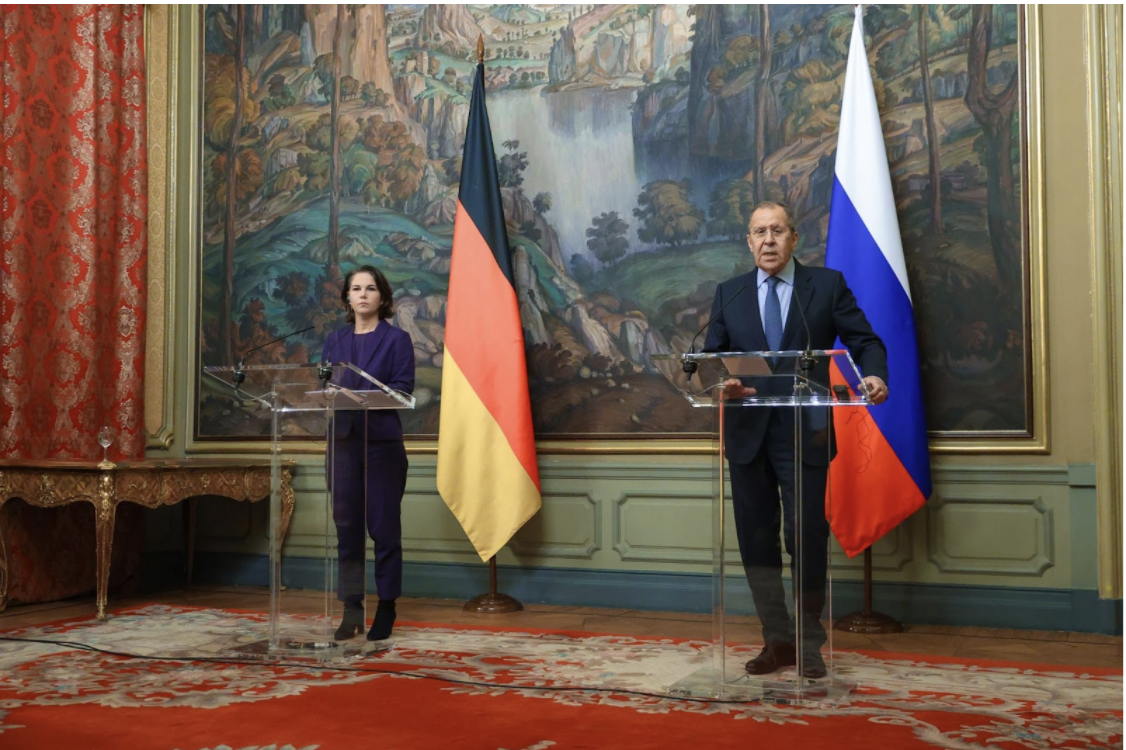Where Does Germany Stand in the Ukraine Crisis?
Germany’s new chancellor, Olaf Scholz, is viewed by some as indecisive and reserved regarding the Ukraine crisis– the hardest foreign affairs challenge yet in his tenure. The Scholz government, while generally on board with the U.S.-backed vows on sanctions against Russia, stopped short from using some of the harshest terms that other Western countries have come to use– and would prefer Washington’s sanctions to cause minimal disruption in Russian exports to Western Europe, especially in the energy sector. Bringing his taciturn style of leadership into foreign policy, many are afraid that this signals a sharp departure from his predecessor Angela Merkel’s era, in which Germany had a strong international presence and the role of key stakeholder and mediator in European affairs.
But Scholz has been quick at the catch-up game, making the first White House visit of his chancellorship on Feb. 7. Ahead of the meeting, the Biden administration sought to consolidate a united front against Russia over the ongoing Ukraine crisis, looking for more than nominal support from its Western European allies– including Germany.
Biden has explicitly vowed to “bring an end” to the already controversy-laden Nord Stream 2 project, a direct natural gas pipeline from Russia to Germany that bypasses intermediary countries like Ukraine. Although the project is completed, it has yet to receive the green light from regulators. It has, however, already been labeled by the U.S. as a Russian geopolitical undertaking, even prior to the latest escalation in Ukraine.
Nord Stream 2 is also expected to further increase Germany’s dependence on Russian energy, while allowing Russia to reduce the impact that the potential invasion of Ukraine would have on its energy exports. Consequently, it would deprive Ukraine of a significant amount of revenue from bypassing natural gas.
During his White House visit, Scholz reaffirmed Germany’s commitment to putting forth measures in accordance with the U.S. and other NATO allies, but avoided commenting on the future of Nord Stream 2.
The development of both phases of the Nord Stream project have continued to fall under the shadow of heavy political influence. Its sole stakeholder, Gazprom, is a Russian state-owned enterprise– whose chairman is Gerhard Schröder, the former chancellor of Scholz’s social democrats party. And Robert Habeck, Germany’s vice chancellor, indicated this week that the future of Nord Stream 2 would depend on the development of the Ukraine crisis. But there is no doubt that the Scholz governing coalition struggles to have a clean-cut stance on energy imports from Russia.
An illustration of the route of Nord Stream 2. Photo: nord-stream2.com
This week, Scholz also made his first visits to Ukraine and Russia to meet the presidents of the two countries engulfed in their most recent geopolitical tension. He follows in the footsteps of French President Emmanuel Macron, who has largely taken over the center of leadership and representation of the EU after Merkel’s departure.
After the mediation efforts of both Macron and Scholz, Russian President Vladimir Putin expressed a softening of attitude and willingness to relax the military build-up at the Ukrainian border. However, this might prove to merely mean that diplomatic channels to prevent a war are not completely shut, and that tensions could re-escalate rapidly at any moment.
The U.S. is remaining somewhat hawkish and preparing for the worst, as it continues the shipments of weapons to Ukraine, a move Germany had previously firmly declined to participate in. Although soon enough, Mr. Scholz’s government will have to go beyond rhetoric and sort out Germany’s exact stance on the matter.

